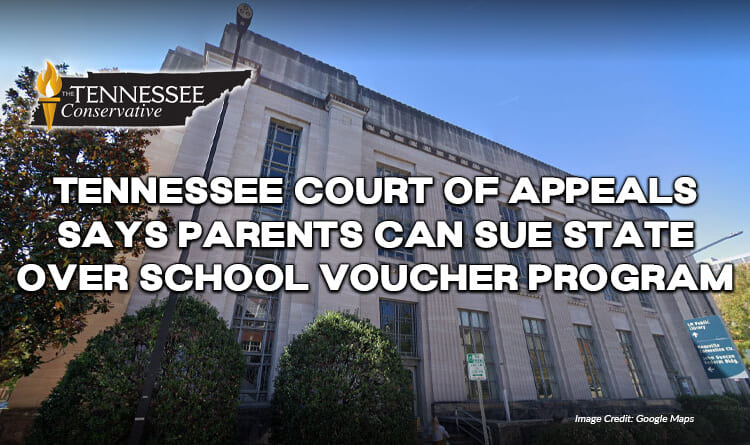Image Credit: Google Maps
The Tennessee Conservative Staff –
According to the Tennessee Court of Appeals, parents who are plaintiffs in a previously brought lawsuit regarding school vouchers can sue the state and the governor over the state’s Education Savings Account (ESA) program.
The Court’s three-judge panel decided that the original plaintiffs in McEwen v. Lee do have the right to sue both the state of Tennessee and the governor over school vouchers.
This ruling by the panel overturned a decision made by a lower court that dismissed a lawsuit that challenged the voucher program, allowing them to now proceed with the case.
The ESA program allows families in Davidson and Shelby counties to use tax money to help cover the cost of private school tuition or other approved educational expenses. The law has been amended to now include Hamilton County Schools.
Governor Bill Lee recently stated that his plan was to use the Education Freedom Scholarship Act to continue to expand the program across the state.
Some argue that this will provide more money to private schools that are not held to the same accountability level as Tennessee’s public schools. Supporters, however, argue that parents should have the right to make educational choices for their children.
“This voucher program takes precious funding from our public school, and it must be challenged,” said Roxanne McEwen, one of the plaintiffs in the case. “I’m very happy the court has recognized that we are entitled to have our voices heard.”
The lawsuit, filed in 2020, claims that the ESA illegally uses taxpayer funds to support private education. They also argue that it is a violation of the Tennessee Constitution and that the program makes public school funding issues even worse in the participating counties.
The state countered that the McEwen plaintiffs lacked grounding to bring the lawsuit and that the dispute was not yet “ripe.” This meant that the court could not yet hear the case because “no school districts had yet lost funding.”
The Court of Appeals ruled that the plaintiffs had, in fact, established standing both as parents of attendees of public schools in the affected districts and as taxpayers contesting an illegal use of public dollars.
The panel ruled, as well, that the case was ripe, stating that the plaintiffs did provide evidence that they were being harmed by the law “in the here and now, not in a hypothetical future scenario.”
Tennessee Attorney General Jonathan Skrmetti’s office is “reviewing the decision.”












